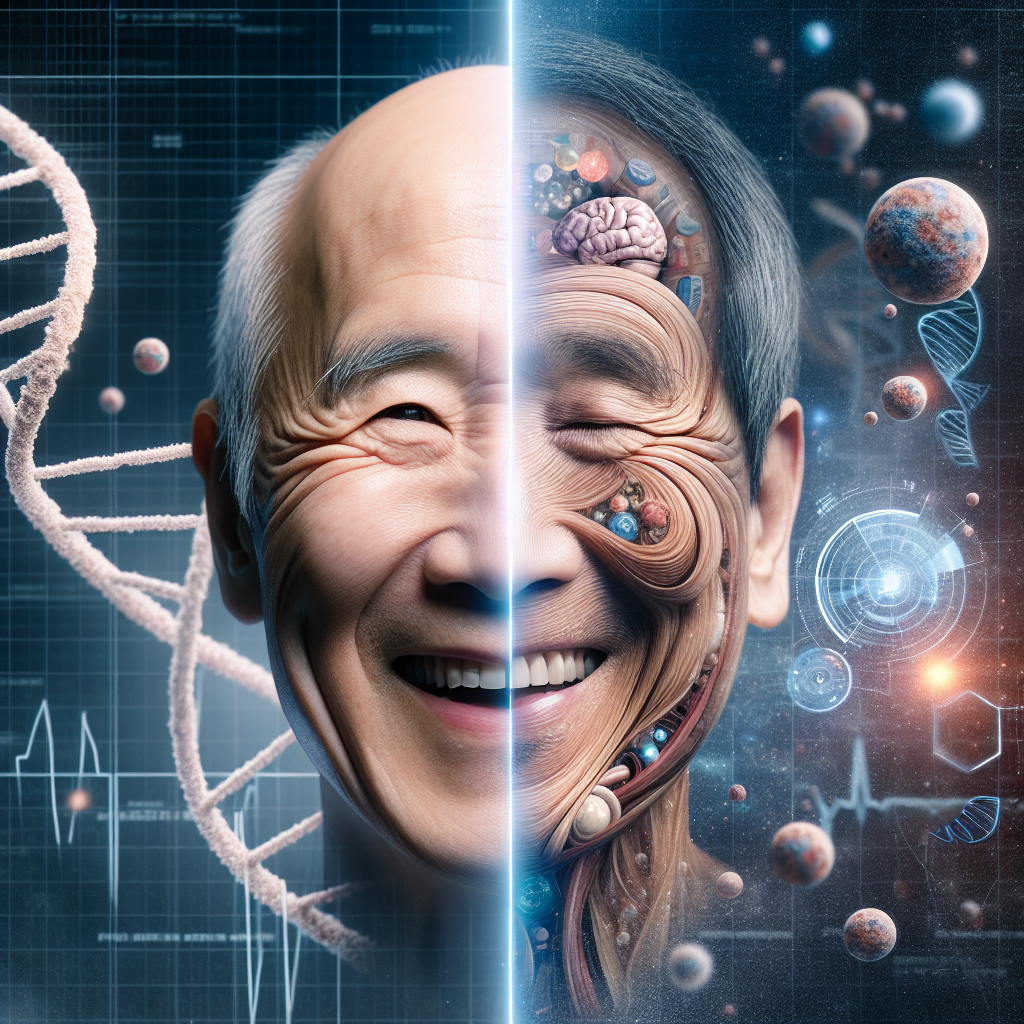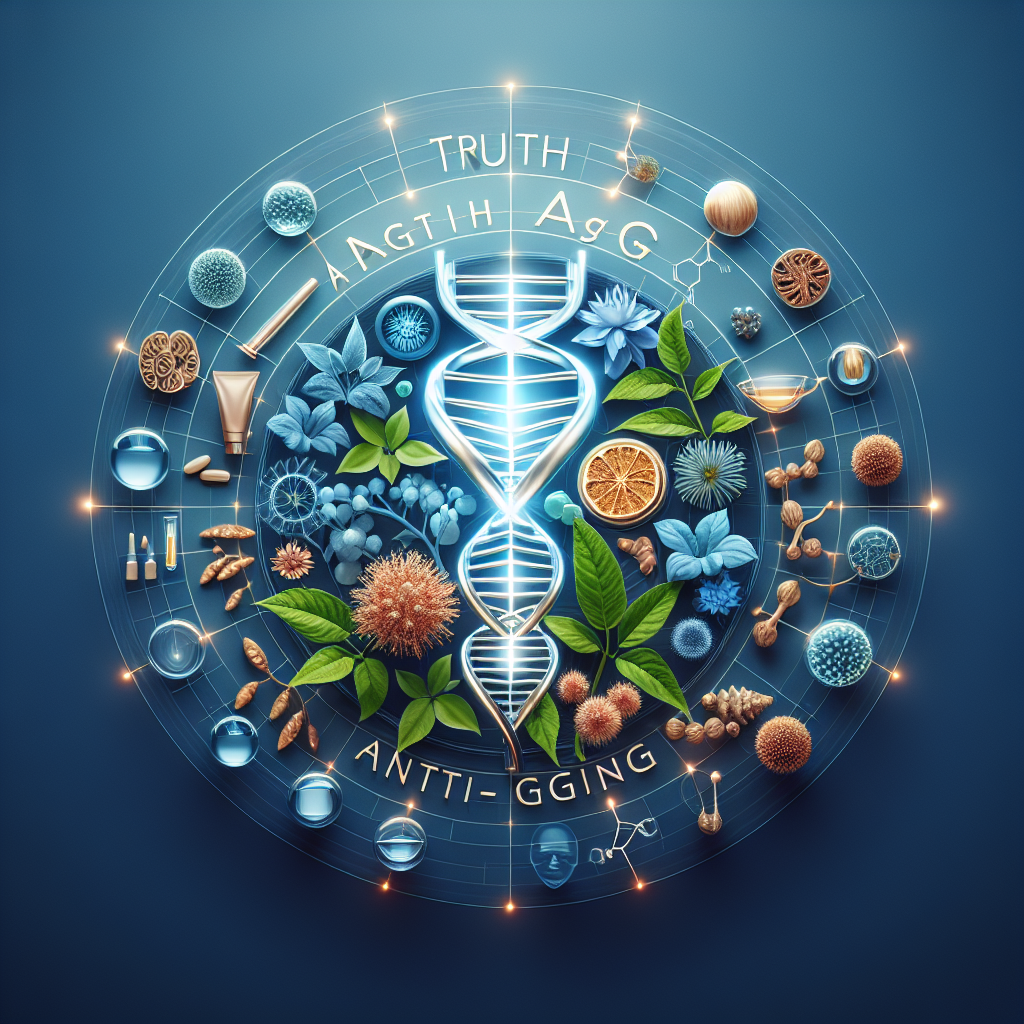The Truth About Anti-Aging

Discover the truth about anti-aging now! Uncover the secrets to a youthful life by clicking here.
Unveiling the Reality: The Truth About Anti-Aging Products
The quest for the proverbial fountain of youth is as old as humanity itself. In our modern world, this quest has taken the form of a multi-billion dollar industry centered around anti-aging products. From creams and serums to pills and procedures, the market is flooded with solutions promising to turn back the hands of time. But what is the truth about anti-aging? Are these products truly the elixir of youth they claim to be, or are they simply a mirage in the desert of our age-related anxieties?
To begin with, it’s important to understand what aging actually entails. Aging is a natural process that involves the gradual deterioration of various bodily functions over time. It’s influenced by a combination of genetic, environmental, and lifestyle factors. While we can’t control our genes, we can certainly influence our environment and lifestyle to slow down the aging process. This is where anti-aging products come into play.
Anti-aging products primarily work by delivering active ingredients that help to repair and regenerate the skin. These ingredients include retinoids, antioxidants, peptides, and hyaluronic acid, among others. Retinoids, for instance, are vitamin A derivatives that boost collagen production and speed up cell turnover, thereby reducing the appearance of wrinkles and fine lines. Antioxidants, on the other hand, protect the skin from free radical damage, which is a major contributor to aging.
However, while these ingredients are scientifically proven to have anti-aging benefits, their effectiveness largely depends on their concentration and the way they are delivered into the skin. Many over-the-counter products, unfortunately, contain only small amounts of these active ingredients and are not formulated in a way that allows for optimal absorption. As a result, they may not provide the dramatic results they promise.
Moreover, it’s crucial to remember that anti-aging products are not magic potions. They can’t reverse the aging process; they can only slow it down. And they certainly can’t compensate for unhealthy lifestyle habits. Regular exercise, a balanced diet, adequate sleep, and sun protection are all integral to maintaining youthful skin. No cream or serum, no matter how expensive or sophisticated, can substitute for these basics.
Another important point to consider is that not all anti-aging products are created equal. The market is rife with products that are not only ineffective but can also be harmful. Some contain harsh chemicals that can irritate the skin or cause allergic reactions. Others may be adulterated with substances that have no proven safety or efficacy. Therefore, it’s essential to do your research and choose products from reputable brands that prioritize quality and transparency.
In conclusion, the truth about anti-aging is that it’s a complex process that can’t be fully halted or reversed with products alone. Anti-aging products can certainly help to mitigate the signs of aging, but their effectiveness is contingent upon their formulation, usage, and the overall lifestyle of the user. It’s also vital to approach these products with realistic expectations and a healthy dose of skepticism. After all, aging is a natural part of life, and there’s a certain beauty and wisdom that comes with growing older that no product can replicate.
Debunking Myths: The Actual Science Behind Anti-Aging

The truth about anti-aging is a topic that has been shrouded in mystery and misconceptions for years. The quest for eternal youth has led to the proliferation of countless myths and half-truths, often leaving the public confused about what truly works and what doesn’t. This article aims to debunk some of these myths and shed light on the actual science behind anti-aging.
Firstly, one of the most common misconceptions is that aging is entirely a genetic process. While genetics do play a role, they are not the sole determinant of how we age. Environmental factors such as diet, exercise, and exposure to harmful substances significantly influence the aging process. Research has shown that a healthy lifestyle can slow down the aging process, even in individuals with a genetic predisposition to age faster.
Another prevalent myth is that expensive anti-aging creams and serums are the key to looking younger. The truth is, while some of these products may help improve the appearance of your skin, they cannot reverse the aging process. The primary function of these products is to hydrate the skin and reduce the appearance of fine lines and wrinkles. However, they do not address the underlying causes of aging, such as cellular damage and decreased collagen production.
This brings us to the actual science behind anti-aging. At its core, aging is a biological process characterized by a gradual decline in the body’s functions. This decline is primarily due to two factors: cellular damage and a decrease in the production of certain proteins, such as collagen and elastin, which are responsible for maintaining the skin’s elasticity and firmness.
Over time, our cells accumulate damage from various sources, including environmental toxins, UV radiation, and metabolic processes. This damage can lead to changes in the structure and function of our cells, contributing to the signs of aging. Therefore, any effective anti-aging strategy must address this cellular damage.
One promising approach is through the use of antioxidants. These are substances that can neutralize harmful free radicals, unstable molecules that can cause cellular damage. By reducing the levels of free radicals in our bodies, antioxidants can potentially slow down the aging process.
Another approach is to boost the production of collagen and elastin. As we age, the production of these proteins decreases, leading to sagging skin and wrinkles. Some research suggests that certain substances, such as retinoids and peptides, can stimulate the production of these proteins, thereby improving the skin’s appearance.
However, it’s important to note that while these strategies can help slow down the aging process, they cannot stop it entirely. Aging is a natural part of life, and it’s impossible to reverse it completely. The best we can do is to age gracefully by taking care of our bodies and our skin.
In conclusion, the truth about anti-aging is that it’s a complex process influenced by both genetic and environmental factors. While certain products and strategies can help slow down the aging process, they cannot reverse it entirely. Therefore, it’s essential to maintain a healthy lifestyle and take care of our skin to age as gracefully as possible.
The Hidden Facts: What Anti-Aging Companies Don’t Want You to Know
The truth about anti-aging is a topic that has been shrouded in mystery and misconceptions for years. The beauty industry, with its glossy advertisements and celebrity endorsements, has painted a picture of anti-aging as a magical process that can turn back the hands of time. However, the reality is far from this idealized image. There are hidden facts about anti-aging that companies don’t want you to know, and it’s time to shed light on them.
Firstly, it’s important to understand that aging is a natural process. It’s an inevitable part of life that everyone must go through. Anti-aging companies often capitalize on the fear of aging, promoting products that promise to erase wrinkles, restore youthful glow, and reverse the signs of aging. However, the truth is that no product can completely halt or reverse the aging process. While certain products can help to mitigate the visible signs of aging, they cannot stop the biological clock.
Moreover, many anti-aging products are marketed with exaggerated claims that are not backed by scientific evidence. For instance, some products claim to boost collagen production, a protein that gives skin its elasticity and firmness. However, most topical products cannot penetrate the skin deeply enough to affect collagen production. In fact, the most effective ways to boost collagen are through a healthy diet, regular exercise, and avoiding sun damage.
Another hidden fact is the overuse of the term “clinically proven” in marketing. This phrase is often used to lend credibility to a product, but it can be misleading. A product may be “clinically proven” to reduce the appearance of wrinkles, but this doesn’t mean it’s been proven to work in all cases or for all skin types. Furthermore, the term doesn’t specify the size or quality of the clinical study, which can greatly impact the reliability of the results.
Additionally, many anti-aging products contain ingredients that can actually harm your skin. For example, some products contain harsh chemicals that can cause skin irritation, dryness, and even accelerate the aging process. It’s crucial to read product labels and understand what you’re putting on your skin. Opt for products with natural ingredients and avoid those with harmful substances.
Lastly, it’s worth noting that the most effective anti-aging strategies are often the simplest and most affordable. Regular use of sunscreen, maintaining a healthy diet, getting enough sleep, and staying hydrated can do wonders for your skin. These habits can help to slow down the aging process and keep your skin looking healthy and youthful.
In conclusion, the truth about anti-aging is that it’s not a magical process that can reverse the signs of aging. It’s a combination of healthy lifestyle habits and the use of quality skincare products. It’s important to be aware of the hidden facts and not fall for the exaggerated claims made by anti-aging companies. Remember, aging is a natural process, and there’s nothing wrong with showing signs of a life well-lived.